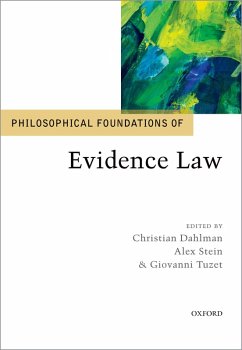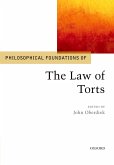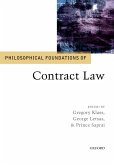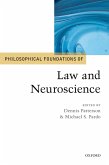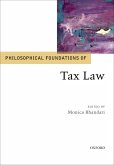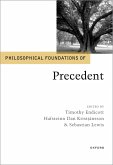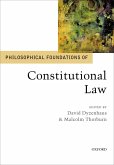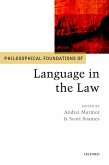Philosophy has a strong presence in evidence law and the nature of evidence is a highly debated topic in both general and social epistemology; legal theorists working in the evidence law area draw on different underlying philosophical theories of knowledge, inference and probability. Core evidentiary concepts and principles, such as the presumption of innocence, standards of proof, and others, reply on moral and political philosophy for their understanding and interpretation. Written by leading scholars across the globe, this volume brings together philosophical debates on the nature and function of evidence, proof, and law of evidence. It presents a cross-disciplinary overview of central issues in the theory and methodology of legal evidence and covers a wide range of contemporary debates on topics such as truth, proof, economics, gender, and race. The volume covers different theoretical approaches to legal evidence, including the Bayesian approach, scenario theory and inference to the best explanation. Divided in to five parts, Philosophical Foundations of Evidence Law, covers different theoretical approaches to legal evidence, including the Bayesian approach, scenario theory and inference to the best explanation.
Dieser Download kann aus rechtlichen Gründen nur mit Rechnungsadresse in A, B, BG, CY, CZ, D, DK, EW, E, FIN, F, GR, HR, H, IRL, I, LT, L, LR, M, NL, PL, P, R, S, SLO, SK ausgeliefert werden.

